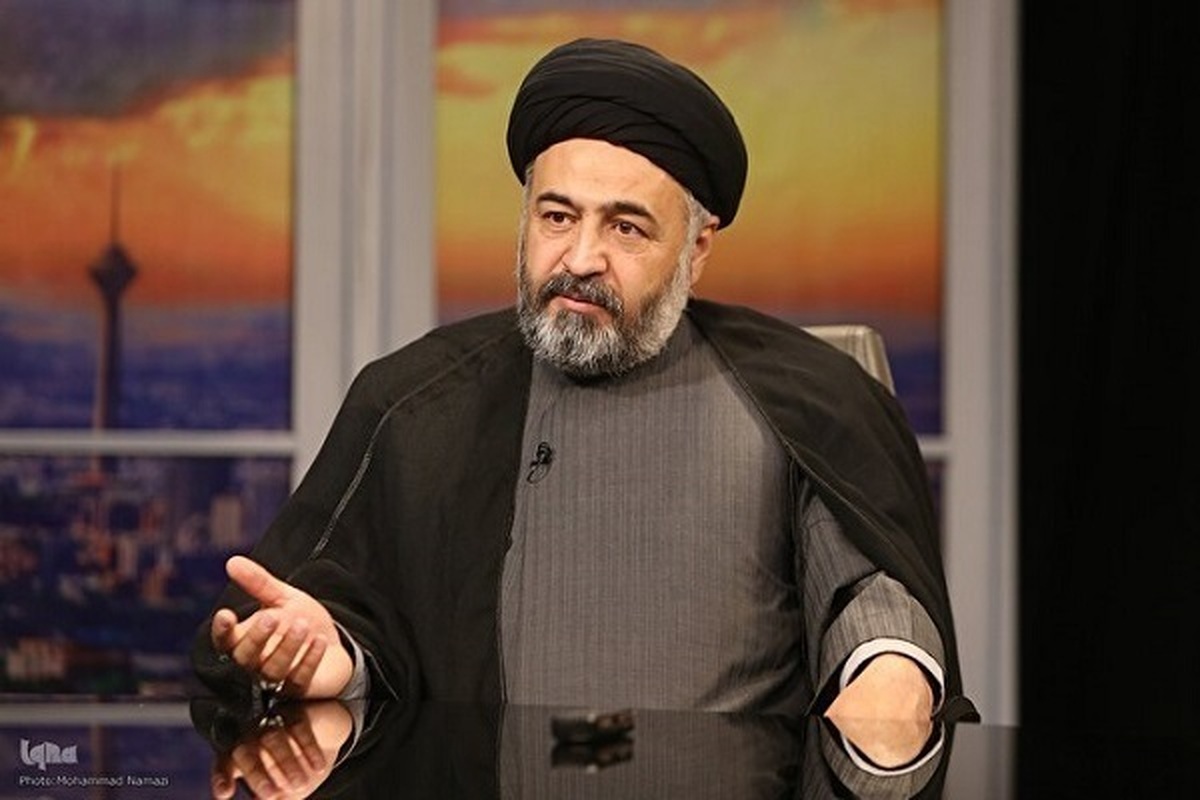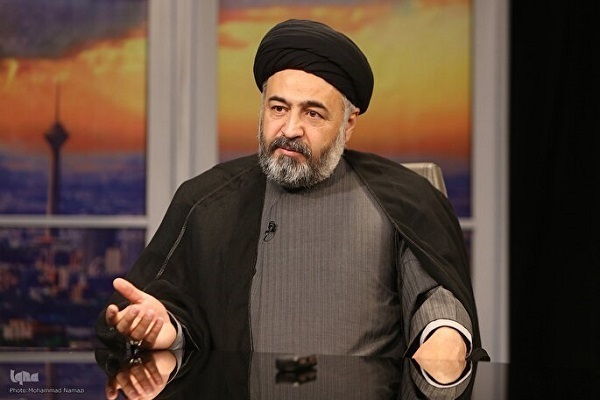Imam Khomeini Introduced A Spiritual, Popular Model of Revolution


This is according to head of the International Quran and Propagation Center of the Islamic Culture and Relations Organization Hojat-ol-Islam Seyed Mostafa Hosseini Neyshabouri, addressing an online seminar titled “Great Imam Khomeini (RA): A Model of Change in Islamic World”.
The seminar was held by the International Quran News Agency (IQNA) on Tuesday morning, ahead of the demise anniversary of the founder of the Islamic Republic of Iran.
Hojat-ol-Islam Hosseini Neyshabouri said when we talk about Imam Khomeini, we are dealing with a multidimensional human being, a human being who does not have a one-dimensional personality and is not someone who has reached the depth of his being with ease and superficial examination; but he has a scientific and political personality and is a great thinker and scientist who has opinions in different fields.
“He was educated in a very important school of thought, which is interpreted as a Wayhani (related to revelation) school of thought, so when we talk about Imam Khomeini, we must take into account the fact that he has a comprehensive personality and is a theoretician, a great politician and a researcher who has reached the top in various fields.”
He said the founder of the Islamic Republic of Iran made progress in the field of practical ethics and practical mysticism and was a self-made and informed person about the events of the day, who had scientific occupations and strived in scholarly field such as jurisprudence and interpretation, but this did not prevent him from being aware of the issues around them.
Hojat-ol-Islam Hosseini Neyshabouri noted that one-dimensional people, when immersed in the realm of knowledge, slowly forget what’s going on in their city and country, but Imam Khomeini was not like that as he was a leader who had a great concern for saving oppressed people everywhere in the world, and later he presented this issue as the “front of the oppressed” versus the “front of the oppressors”.
The Imam (RA) combined science with practice and deepened it and tried to think and reflect on what he perceived, the issues of the Islamic world were important to him from the very beginning and he was concerned and thought about it, he said.
Imam Khomeini was saddened by the Palestinian issue and spoke about it in meetings with other scholars, he stated.
Hojat-ol-Islam Hosseini Neyshabouri further referred to the Islamic Revolution and said, “Many people throughout history have claimed reform, and the reform of society is a pleasant and desirable thing for people, especially those who are oppressed, and they move behind and support the reformers to liberate themselves from oppression, and many revolutions, including the French and Russian revolutions, have taken place in the world. History has witnessed many changes, though. Some of these revolutions at the beginning had a good path and good concerns, but after a while they lost their color and deviated from their path. Some of those who were dismissed because of the revolution managed to deceive the people and distort the public mind with social-political tricks, and the results of the revolution were ignored again and society returned to the same path as was before the revolution; so the personalities who made the revolution, are important.”
He added that the Islamic Revolution in Iran has a very important difference from other revolutions in the world, and that is that in the year 1979, the Imam preferred to choose a spiritual popular revolution from among the various models of revolutions that were proposed to him.
Read More:
“This was while some of the Imam’s associates suggested an armed revolution, others separated from the path of the Islamic revolution and took up arms and began armed struggle; but the Imam did not approve of this and had reasons for it; firstly, that until the demand of the people and the public is formed, even if the tyranny is overthrown a few days, it will not last; because the minds are not mature and until there is no thought, there is no demand and serious support from the people.”
Imam Khomeini chose a model for the revolution that relied on God and the awakening of the people as its capital, did not give the people false addresses and spoke to them about religion, freedom and independence, which became the main slogans of the revolution, he went on to say.
Also speaking at the webinar were scholars and thinkers from Bahrain, Iraq and Lebanon.
The theme of Bahraini cleric Sheikh Abdullah Daqqaq’s speech was “Hajj and Development of the Muslim World’s Ideological Movement in Imam Khomeini’s (RA) Thoughts”.
Jumaa Al-Otwani, director of the “Horizon” Center for Political Studies and Analysis in Baghdad, Iraq, delivered a video lecture on “Imam Khomeini (RA) and the Strategy of Islamic Unity”, and Linda Taboush, a Lebanese university lecturer and analyst, presented her speech on “Imam Khomeini (RA); The Innovator of the Islamic Ummah’s Self-Discovery”.
Read More:
Ayatollah Ruhollah Moussavi Khomeini, better known as Imam Khomeini, engineered Iran’s 1979 Islamic Revolution, which led to the overthrow of the US-backed Shah of Iran.
Born in 1902, he grew to become the iconic leader of the Iranian nation’s struggle in the 1970s against the centuries-old monarchical tyranny.
Imam Khomeini passed away on June 3, 1989, at the age of 87.
4286001



